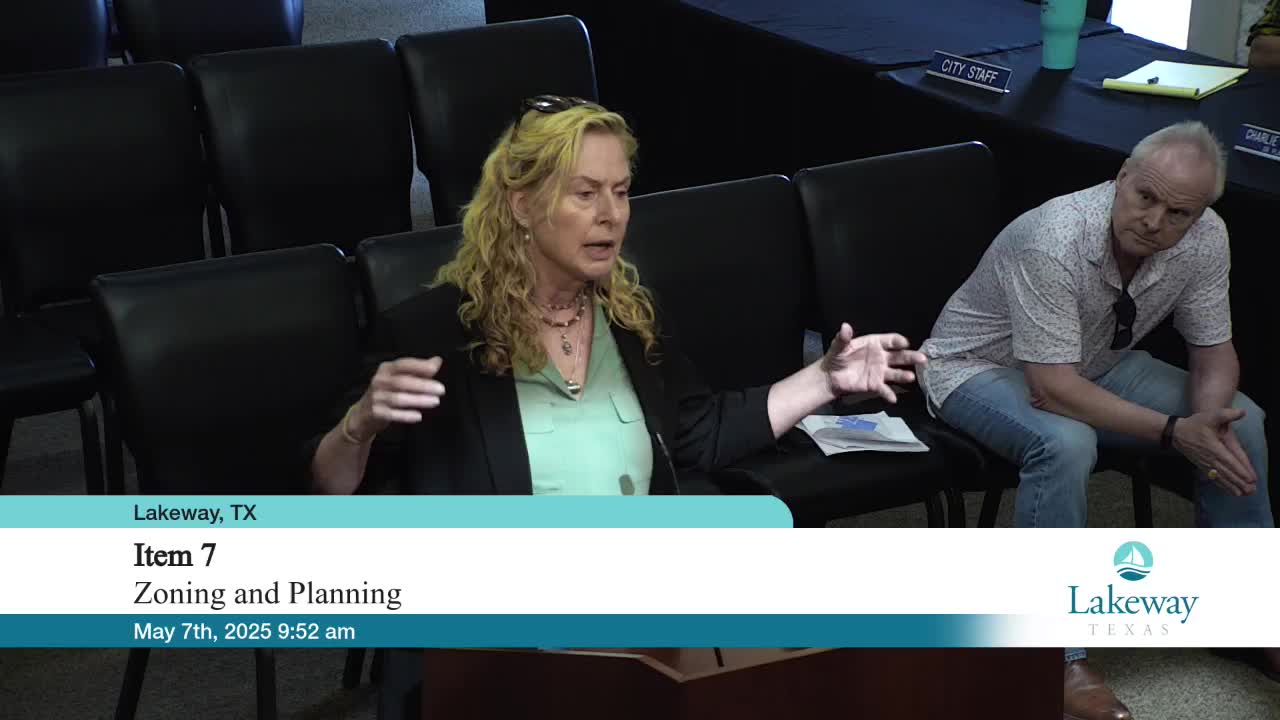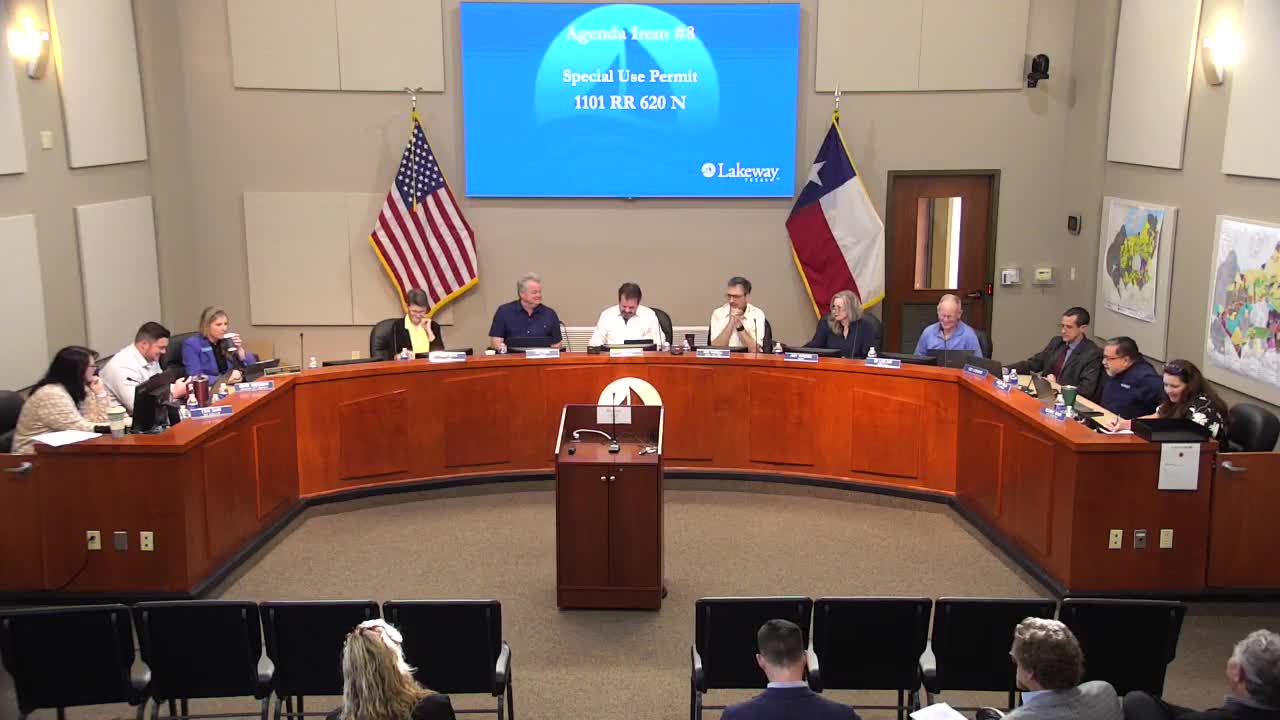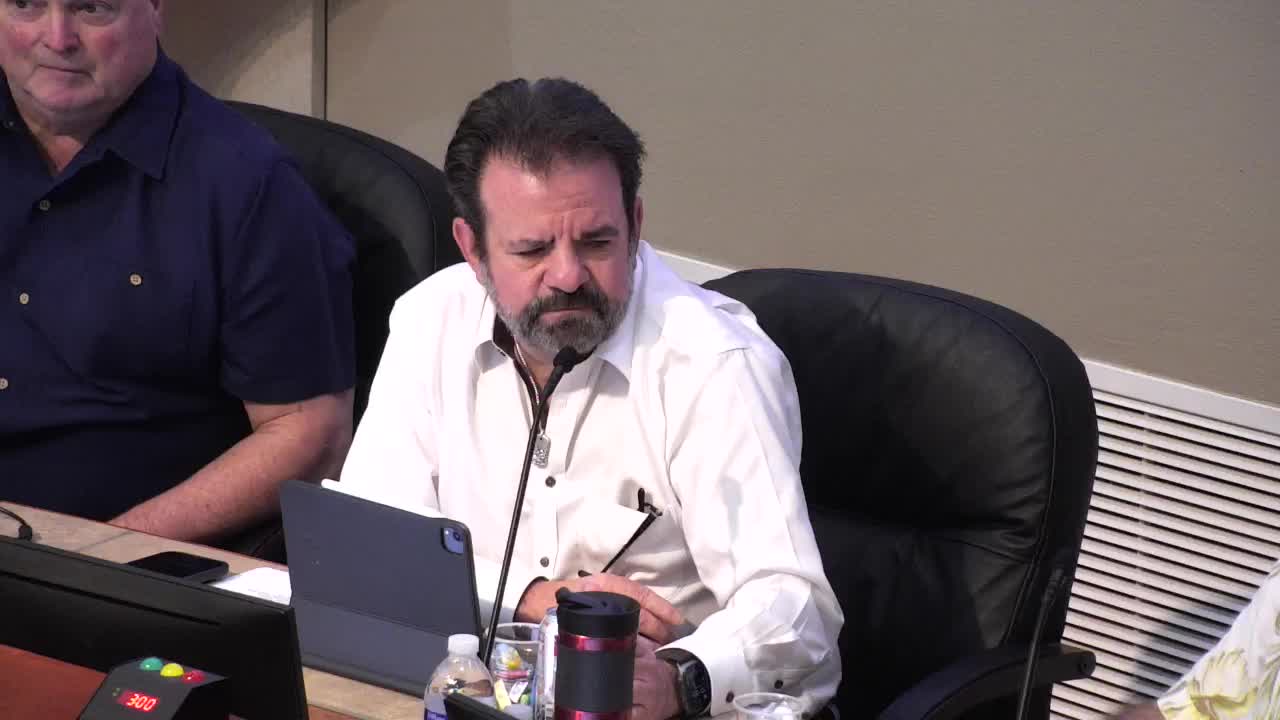Article not found
This article is no longer available. But don't worry—we've gathered other articles that discuss the same topic.

Zoning commission backs ordinance to regulate withdrawals and postponements of zoning applications, with amendments to protect public comment

Zoning commission recommends denial of Texas Car Club special use permit for 1101 Ranch Road 620 North

